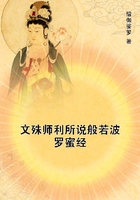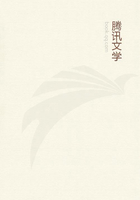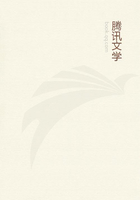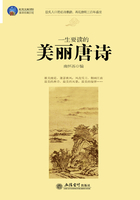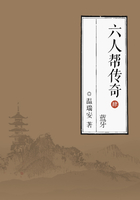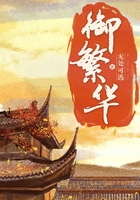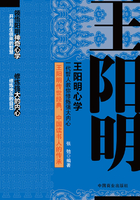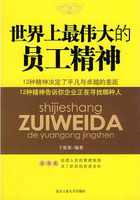Kinglake entered at Trinity, Cambridge, in 1828, among an exceptionally brilliant set - Tennyson, Arthur Hallam, John Sterling, Trench, Spedding, Spring Rice, Charles Buller, Maurice, Monckton Milnes, J. M. Kemble, Brookfield, Thompson. With none of them does he seem in his undergraduate days to have been intimate. Probably then,as afterwards, he shrank from CAMARADERIE, shared Byron's distaste for "enthusymusy"; naturally cynical and self- contained, was repelled by the spiritual fervour, incessant logical collision, aggressive tilting at abuses of those young "Apostles," already"Yearning for the large excitement that the coming years would yield, Eager-hearted as a boy when first he leaves his father's field,"waxing ever daily, as Sterling exhorted, "in religion and radicalism." He saw life differently; more practically, if more selfishly; to one rhapsodizing about the "plain living and high thinking" of Wordsworth's sonnet, he answered: "You know that you prefer dining with people who have good glass and china and plenty of servants." For Tennyson's poetry he even then felt admiration; quotes, nay, misquotes, in "Eothen," from the little known "Timbuctoo"; and from "Locksley Hall"; and supplied long afterwards an incident adopted by Tennyson in "Enoch Arden,""Once likewise in the ringing of his ears Though faintly, merrily - far and far away - He heard the pealing of his parish bells," from his own experience in the desert, when on a Sunday, amid overpowering heat and stillness, he heard the Marlen bells of Taunton peal for morning church. In whatever set he may have lived he made his mark at Cambridge. Lord Houghton remembered him as an orator at the Union; and speaking to Cambridge undergraduates fifty years later, after enumerating the giants of his student days, Macaulay, Praed, Buller, Sterling, Merivale, he goes on to say: "there, too, were Kemble and Kinglake, the historian of our earliest civilization and of our latest war; Kemble as interesting an individual as ever was portrayed by the dramatic genius of his own race; Kinglake, as bold a man-at-arms in literature as ever confronted public opinion." We know, too, that not many years after leaving Cambridge he received, and refused, a solicitation to stand as Liberal representative of the University in Parliament. He was, in fact, as far as any of his contemporaries from acquiescing in social conventionalisms and shams. To the end of his life he chafed at such restraint: "when pressed to stay in country houses," he writes in 1872, "I have had the frankness to say thatI have not discipline enough."Repeatedly he speaks with loathing of the "stale civilization," the"utter respectability," of European life; longed with all hissoul for the excitement and stir of soldiership, from which hisshortsightedness debarred him; rushed off again and again intoforeign travel; set out immediately on leaving Cambridge, in 1834, for his first Eastern tour, "to fortify himself for the business oflife." Methley joined him at Hamburg, and they travelled byBerlin, Dresden, Prague, Vienna, to Semlin, where his book begins.Lord Pollington's health broke down, and he remained to winter atCorfu, while Kinglake pursued his way alone, returning to Englandin October, 1835. On his return he read for the Chancery Baralong with his friend Eliot Warburton, under Bryan Procter, aCommissioner of Lunacy, better known by his poet-name, BarryCornwall; his acquaintance with both husband and wife ripening intolifelong friendship.Mrs. Procter is the "Lady of Bitterness,"cited in the "Eothen" Preface.As Anne Skepper, before hermarriage, she was much admired by Carlyle; "a brisk witty prettyishclear eyed sharp tongued young lady"; and was the intimate, amongmany, especially of Thackeray and Browning.In epigrammatic powershe resembled Kinglake; but while his acrid sayings were emitted with gentlest aspect and with softest speech; while, like Byron'sLambro: "he was the mildest mannered man That ever scuttled ship or cut a throat, With such true breeding of a gentleman, You never could divine hisreal thought,"
her sarcasms rang out with a resonant clearness that enforced and aggravated their severity. That two persons so strongly resembling each other in capacity for rival exhibition, or for mutual exasperation, should have maintained so firm a friendship, often surprised their acquaintance; she explained it by saying that she and Kinglake sharpened one another like two knives; that, in the words of Petruchio,"Where two raging fires meet together, They do consume the thing that feeds their fury."Crabb Robinson, stung by her in a tender place, his boastful iterative monologues on Weimar and on Goethe, said that of all men Procter ought to escape purgatory after death, having tasted its fulnesshere through living so many years with Mrs. Procter; "the husbands of the talkative have great reward hereafter," said Rudyard Kipling's Lama. And I have been told by those who knew the pair that there was truth as well as irritation in the taunt. "A graceful Preface to 'Eothen,'" wrote to me a now famous lady who as a girl had known Mrs. Procter well, "made friendly company yesterday to a lonely meal, and brought back memories of Mr. Kinglake's kind spoiling of a raw young woman, and of the wit, the egregious vanity, the coarseness, the kindness, of that hard old worldling our Lady of Bitterness." In the presence of one man, Tennyson, she laid aside her shrewishness: "talking with Alfred Tennyson lifts me out of the earth earthy; a visit to Farringford is like a retreat to the religious." A celebrity in London for fifty years, she died, witty and vigorous to the last, in 1888. "You and I and Mr. Kinglake," she says to Lord Houghton, "are all that are left of the goodly band that used to come to St. John's Wood; Eliot Warburton, Motley, Adelaide, Count de Verg, Chorley, Sir Edwin Landseer, my husband." "I never could write a book," she tells him in another letter, "and one strong reason for not doing so was the idea of some few seeing how poor it was. Venables was one of the few; I need not say that you were one, and Kinglake."Kinglake was called to the Chancery Bar, and practised apparently with no great success. He believed that his reputation as a writer stood in his way. When, in 1845, poor Hood's friends were helping him by gratuitous articles in his magazine, "Hood's Own," Kinglake wrote to Monckton Milnes refusing to contribute. He will send 10 pounds to buy an article from some competent writer, but will not himself write. "It would be seriously injurious to me if the author of 'Eothen' were AFFICHED as contributing to a magazine. My frailty in publishing a book has, I fear, already hurt me in my profession, and a small sin of this kind would bring on me still deeper disgrace with the solicitors."Twice at least in these early years he travelled. "Mr. Kinglake," writes Mrs. Procter in 1843, "is in Switzerland, reading Rousseau." And in the following year we hear of him in Algeria, accompanying St. Arnaud in his campaign against the Arabs.The mingled interest andhorror inspired in him by this extra-ordinary man finds expression in his "Invasion of the Crimea" (ii. 157). A few, a very few survivors, still remember his appearance and manners in the forties. The eminent husband of a lady, now passed away, who in her lifetime gave Sunday dinners at which Kinglake was always present, speaks of him as SENSITIVE, quiet in the presence of noisy people, of Brookfield and the overpowering Bernal Osborne; liking their company, but never saying anything worthy of remembrance. A popular old statesman, still active in the House of Commons, recalls meeting him at Palmerston, Lord Harrington's seat, where was assembled a party in honour of Madame Guiccioli and her second husband, the Marquis de Boissy, and tells me that he attached himself to ladies, not to gentlemen, nor ever joined in general tattle. Like many other famous men, he passed through a period of shyness, which yielded to women's tactfulness only. From the first they appreciated him; "if you were as gentle as your friend Kinglake," writes Mrs. Norton reproachfully to Hayward in the sulks. Another coaeval of those days calls him handsome - an epithet I should hardly apply to him later - slight, not tall, sharp featured, with dark hair well tended, always modishly dressed after the fashion of the thirties, the fashion of Bulwer's exquisites, or of H. K. Browne's "Nicholas Nickleby" illustrations; leaving on all who saw him an impression of great personal distinction, yet with an air of youthful ABANDON which never quite left him: "He was pale, small, and delicate in appearance," says Mrs. Simpson, Nassau Senior's daughter, who knew him to the end of his life; while Mrs. Andrew Crosse, his friend in the Crimean decade, cites his finely chiselled features and intellectual brow, "a complexion bloodless with the pallor not of ill-health, but of an old Greek bust."

